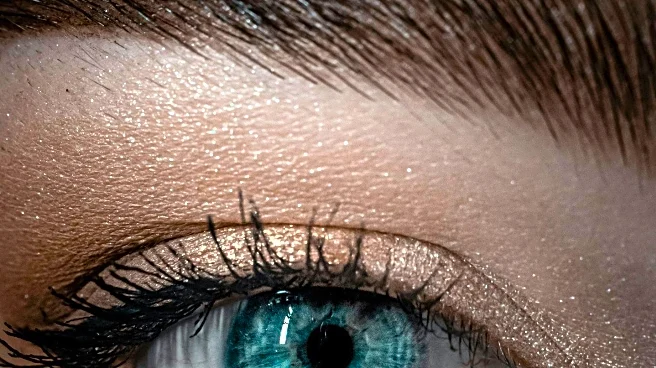What is the story about?
What's Happening?
Dr. James Kelly, an NYC-based eye surgeon, has expressed skepticism about the effectiveness of blue-light glasses in reducing digital eye strain or improving sleep. According to Kelly, there is no substantial scientific evidence supporting the benefits of these glasses, which have gained popularity since the 2000s. Instead, Kelly recommends several strategies to alleviate digital eye strain, such as following the '20-20-20' rule, using preservative-free artificial tears, and optimizing workstation setups. He emphasizes the importance of UV-blocking sunglasses for outdoor protection and suggests limiting screen time before bed to prevent sleep disruption.
Why It's Important?
The widespread use of digital devices has led to increased concerns about digital eye strain, affecting a significant portion of the population. Kelly's insights challenge the growing market for blue-light glasses, which is projected to expand significantly despite questionable efficacy. His recommendations highlight practical measures that can be more effective in managing eye health, potentially influencing consumer behavior and industry practices. By focusing on scientifically supported methods, Kelly aims to guide individuals towards healthier screen habits and eye care routines.
What's Next?
As awareness of digital eye strain grows, consumers may begin to question the value of blue-light glasses and seek alternative solutions. Eye care professionals and industry stakeholders might respond by promoting evidence-based practices and products that address the root causes of eye strain. This shift could lead to increased demand for UV protection sunglasses and other scientifically validated eye care products. Additionally, further research into the effects of blue light and digital device usage on eye health may continue to shape public understanding and industry offerings.

















